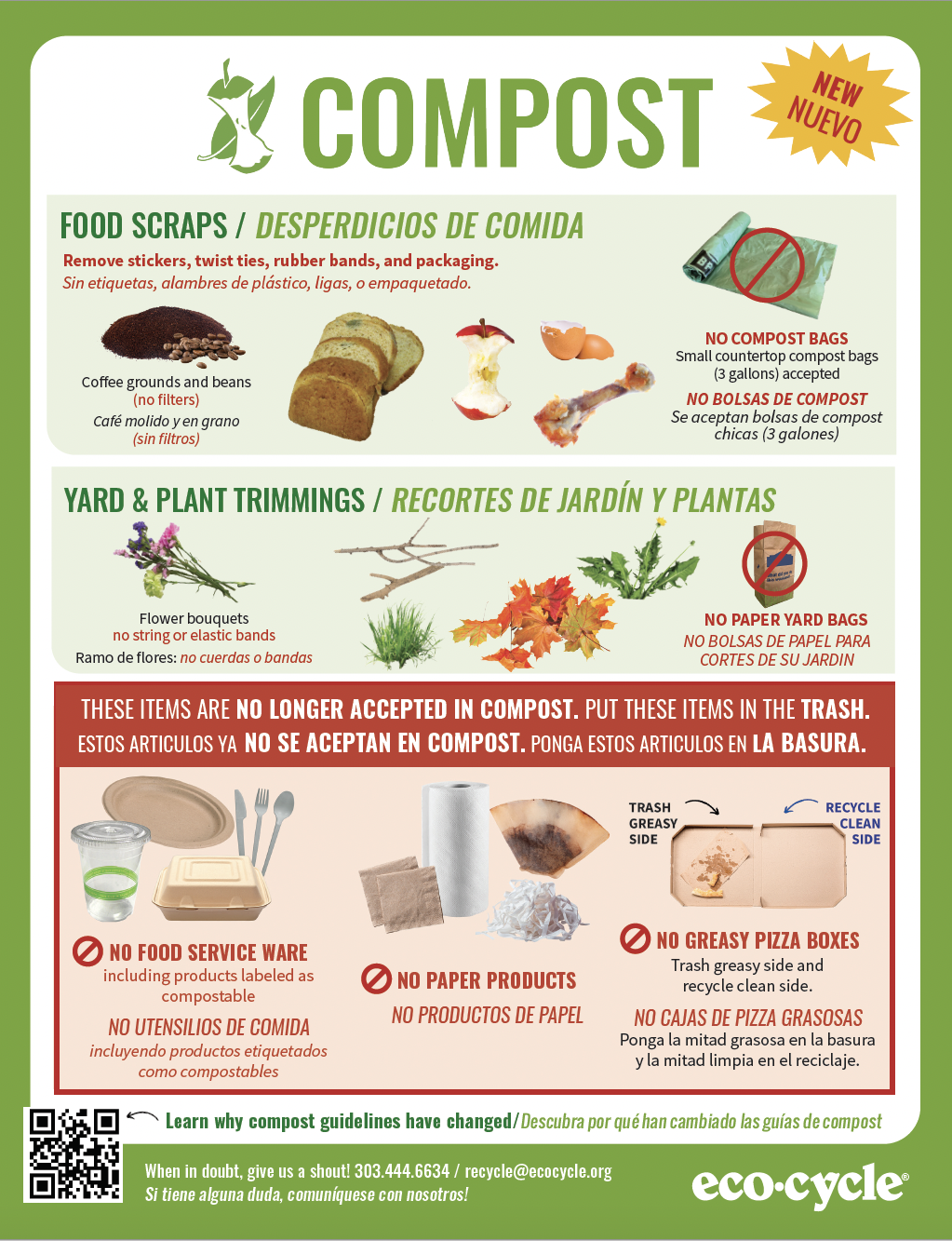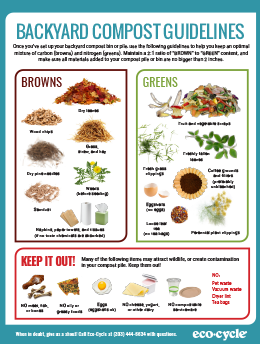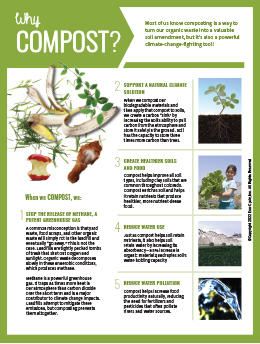Because compost is so essential for building healthy soils and is a critical climate solution, creating policies and infrastructure that support the success of compost are becoming key priorities on the state and municipal levels.
New policies are being introduced:
– A new Organics Waste Diversion bill will direct the Colorado Department of Public Health and Environment (CDPHE) to study and make recommendations about banning food and yard trimmings from the landfill and building the infrastructure needed to divert these materials into better uses like compost (this was one of CDPHE’s recommendations from the newly released Statewide Organics Management Plan).
– A Truth in Labeling bill would require all disposable food service products like cups, utensils, and take-out containers to be certified compostable and labeled as such, or not to contain any labeling that implies greenwashing, like “biodegradable,” or “plant-based,” or “green.” This is to help clean up the contamination from these noncompostable products in our compost stream.
New infrastructure is being researched and proposed:
– Different stakeholders are looking at funding and implementing different infrastructure solutions ranging from prescreening at compost transfer locations to building additional compost infrastructure at other locations.
– Eco-Cycle and other stakeholders are working to create decentralized compost systems for on-farm composting, as well as smaller compost systems that could work for large generators like universities or small communities.
– Communities are looking at supporting restaurants and other businesses with piloted reuse infrastructure to replace the use of compostables, recyclables, and disposables.



























